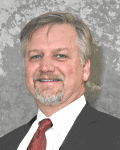NIAID welcomes our new Council members: Dr. Monica Gandhi, Dr. Paul Goepfert, Dr. Harry Greenberg, Dr. Audrey Pettifor, and Dr. Ken Stuart.
- Senior Staff
- Acquired Immunodeficiency Syndrome (DAIDS) Subcommittee
- Allergy, Immunology, and Transplantation (DAIT) Subcommittee
- Microbiology and Infectious Diseases (DMID) Subcommittee
Senior Staff
- Chairperson: Anthony S. Fauci, M.D., director, NIAID, NIH, HHS
- Executive secretary: Matthew J. Fenton, Ph.D., director, DEA, NIAID, NIH, HHS
- Ex officio members:
- Francis S. Collins, M.D., Ph.D., director, NIH, HHS
- Other ex officio members are listed beneath their subcommittee.
Acquired Immunodeficiency Syndrome (DAIDS) Subcommittee
| Photo | Name, Biosketch, and Date Term Ends |
|---|---|
| Ritu Agarwal, Ph.D., is a distinguished university professor, interim dean, and the Robert H. Smith Dean’s Chair of Information Systems at the Robert H. Smith School of Business, University of Maryland, College Park. She is also the founding director of the Center for Health Information and Decision Systems at the Smith School of Business. As a social scientist, Dr. Agarwal aims to unravel the underlying behavioral, psychological, and social processes that enable and constrain successful healthcare interventions. She is an expert in the digital transformation of healthcare, health analytics, and artificial intelligence applications in health. In 2010, Dr. Agarwal launched the Annual Conference on Health IT and Analytics, which is a leading research forum at the intersection of technology, analytics, and health. (October 31, 2022) | |
| Monica Gandhi, M.D., M.P.H., is professor of medicine and associate chief in the Division of HIV, Infectious Diseases, and Global Medicine at the University of California, San Francisco (UCSF). Dr. Gandhi is also the director of the UCSF Center for AIDS Research (CFAR) and the medical director of the HIV Clinic ("Ward 86") at San Francisco General Hospital. Her research focuses on HIV and women, and adherence measurement in HIV treatment and prevention. She is clinical director of the UCSF Hair Analytical Laboratory, which has been analyzing antiretroviral concentrations in hair samples for over a decade and provides this service for a number of research groups around the globe. Dr. Gandhi holds an annual “Mentoring the Mentors” workshop to train HIV researchers nationwide and globally on tools and techniques to improve their research mentoring skills. (October 31, 2023) | |
| Paul Goepfert, M.D., is a physician-scientist in the Department of Medicine, Division of Infectious Diseases at the University of Alabama at Birmingham. Dr. Goepfert’s clinical research focuses on vaccine development. He has been conducting clinical vaccine trials for over 25 years, with the majority of studies testing preventative HIV vaccines as part of the HIV Vaccine Trials Network. He also has an NIH-funded translational research laboratory, which focuses on viral-specific T cell responses and analyzing how HIV-specific CD8 T cells are able to control infection. Dr. Goepfert recently began studying Severe Acute Respiratory Syndrome Coronavirus 2-specific CD8 T cell responses from cohorts of patients infected in the local area with the goal of determining clinical correlates of disease protection. (October 31, 2023) | |
|
Amita Gupta, M.D., M.H.S., is professor of medicine (infectious diseases subspecialty) and public health at Johns Hopkins University, and deputy director of the Johns Hopkins Center for Clinical Global Health Education. She is a physician and clinical researcher who studies the prevention, diagnosis, and treatment of HIV and tuberculosis and co-infections. Dr. Gupta is among few researchers internationally who specialize in clinical trials to improve infectious diseases outcomes across the life spectrum, including infants and pregnant and lactating women. She serves in leadership and scientific advisory positions in several HIV and tuberculosis research networks, including the AIDS Clinical Trials Group (ACTG); International Maternal, Pediatric, Adolescent AIDS Clinical Trials (IMPAACT) network; International epidemiology Databases to Evaluate AIDS (IeDEA); and RePORT multinational tuberculosis research consortium. (October 31, 2022) |
|
| Audrey Pettifor, Ph.D., M.P.H., is professor in the Department of Epidemiology in the Gillings School of Public Health at the University of North Carolina at Chapel Hill and faculty fellow with the Carolina Population Center. Dr. Pettifor’s research focuses on understanding how social determinants impact HIV and sexual and reproductive health outcomes, particularly among adolescents and young women in sub-Saharan Africa, and developing and testing structural interventions to improve HIV prevention and care outcomes. She has led multiple NIH-funded studies of different populations in South Africa, including a large cash transfer trial conditioned on school attendance to reduce HIV risk among adolescent girls, a study examining how HIV self-testing impacts HIV testing uptake among young women and their peers and partners, and a trial of community mobilization to increase HIV testing and linkage to care among men and women in the rural part of the country. Dr. Pettifor is co-chair of the HIV Prevention Trials Network Adolescent Scientific Committee. (October 31, 2023) | |
Ex officio member:
|
Allergy, Immunology, and Transplantation (DAIT) Subcommittee
| Photo | Name, Biosketch, and Date Term Ends |
|---|---|
| Michael Brenner, M.D. (October 31, 2021) | |
| Elling Eidbo, M.B.A., is the former chief executive officer of the Association of Organ Procurement Organizations (AOPO). For over 10 years, he represented the Organization that serves the Nation’s 58 federally designated OPOs. Mr. Eidbo is a current board member of Donate Life America and has served on numerous government and industry advisory committees and workgroups on issues related to donation and transplantation. He previously served as the clinical director of the Washington Regional Transplant Community and as an inspector for the American Association of Tissue Banks. Mr. Eidbo also worked for the National Heart, Lung, and Blood Institute on prosthetic heart valves and cardiac ultrasound research and with firms to build biorepositories to support genomic and proteomic research. (October 31, 2022) | |
| Marc K. Jenkins, Ph.D., is a Regents Professor in the Department of Microbiology and Immunology and director of the Center for Immunology at the University of Minnesota. He conducts basic research on antigen-specific immune responses by helper T cells and B cells. Dr. Jenkins has been a member or chair of several NIH study sections and served on the National Cancer Institute Board of Scientific Counselors. He is a past president of the American Association of Immunologists. (October 31, 2021) | |
| Gwendalyn J. Randolph, Ph.D., is the Emil R. Unanue Distinguished Professor in the Department of Pathology and Immunology and director of the Immunology Ph.D. Graduate Program at Washington University of Medicine in Saint Louis. Dr. Randolph conducts research on the trafficking of molecules and cells out of tissues to lymph nodes via lymphatic vessels and how such trafficking, or its failure, impacts the tissue environment and progression/resolution of inflammation. For many years, her laboratory particularly focused on the trafficking monocytes, dendritic cells, and macrophages, and the group still maintains a number of projects focused on these cell types. (October 31, 2022) | |
| Anuradha Ray, Ph.D., is professor of medicine and immunology and Endowed Chair in Lung Immunology at the University of Pittsburgh School of Medicine. Dr. Ray’s research involves studies of immune mechanisms that regulate inflammation versus tolerance in the lung. Her early research led to identifying NF-κB as a target of the anti-inflammatory actions of corticosteroids and the discovery of GATA-3 as the master regulator of Th2 cells. A key focus of her current research is immune dysfunction in severe asthma that unlike milder asthma is refractory to corticosteroid treatment. Her research employs cutting-edge bioinformatic tools to integrate clinical data and data derived from mouse models and basic mechanistic studies to obtain the most granular information about disease pathogenesis. (October 31, 2022) | |
| Kay Whalen, M.B.A., is president of Executive Director, Inc., an association management firm that provides services to over 30 medical associations. Ms. Whalen serves as the executive director of the American Academy of Allergy, Asthma, and Immunology (AAAAI) and the American Academy of Emergency Medicine, and in a consulting partner role to the Clinical Immunology Society, the World Allergy Organization, and other medical associations. She received the Industry Advocate Award from the Wisconsin Society of Association Executives in 2006 and the AAAAI Distinguished Layperson Award in 2010. (October 31, 2021) |
Microbiology and Infectious Diseases (DMID) Subcommittee
| Photo | Name, Biosketch, and Date Term Ends |
|---|---|
| Mark Feinberg M.D., Ph.D., is president and CEO of the International AIDS Vaccine Initiative (IAVI). He is a physician-scientist who has been actively engaged in basic, translational, and clinical research, as well as patient care and health care policy—with a primary focus on HIV/AIDS pathogenesis, treatment, and prevention research, and the biology of emerging infectious diseases. Dr. Fefinberg served on the faculty of the University of California, San Francisco, and the Emory University School of Medicine, and as a medical officer in NIH’s Office of AIDS Research. From 2004 to 2015, he was vice president and chief public health and science officer for Merck Vaccines. Dr. Feinberg currently serves as chair of the Interim Scientific Advisory Committee of the Collaboration for Epidemic Preparedness Innovations. (October 31, 2020) | |
|
Ana Fernandez-Sesma, Ph.D., is a professor in the Department of Microbiology, Icahn School of Medicine at Mount Sinai (ISMMS). Her laboratory studies the modulation of innate immunity by viruses of human health interests, including dengue, influenza, HIV, and Zika, using mainly primary human systems, such as dendritic cells and macrophages as well as primary lung epithelial cells and human tonsils. The main goal is to understand the mechanisms of immune evasion used by these viruses to establish infection in humans. Dr. Fernandez-Sesma co-directs the Microbiology Main Training Area of the Graduate School of Biomedical Sciences at ISMMS. She is on the editorial board of mSphere, PLoS Pathogens, and the Journal of Virology; has been a member of several NIH study sections; and is chair of the NIAID Human Immunology Project Consortium Steering Committee. (October 31, 2021)
|
|
| Harry Greenberg, M.D., is associate dean for research and professor of medicine and microbiology and immunology at Stanford University School of Medicine. Dr. Greenberg is also the co-director of Spectrum, the Stanford Clinical and Translational Science Center. His research career has focused on viruses that infect the gastrointestinal tract, lungs, and liver with a special focus on rotaviruses, viral pathogenesis, viral immunity, and vaccines. He was an inventor of the first licensed rotavirus vaccine in the United States and part of the teams that developed the Indian ROTAVAC vaccine now licensed and widely used in India. His research has also involved studies of noroviruses, hepatitis B and C viruses, and influenza. Dr. Greenberg served as chair of FDA’s Vaccines and Related Biologics Advisory Committee. (October 31, 2023) | |
| Stanley M. Lemon, M.D., is professor of medicine and microbiology and immunology at the University of North Carolina at Chapel Hill. His research interests focus on the molecular virology of hepatotropic RNA viruses, the role of innate immunity in the pathogenesis of viral hepatitis, and mechanisms by which nonenveloped viruses such as those responsible for hepatitis A and hepatitis E gain egress from infected cells without cell lysis. Dr. Lemon served as chair of FDA’s Anti-Infective Drugs Advisory Committee and Vaccines and Related Biologics Advisory Committee, as well as NIH’s Virology B Study Section. He was founding director of the Biosafety Level 4 Galveston National Laboratory at the University of Texas Medical Branch and a member of the National Science Advisory Board on Biosecurity. (October 31, 2020) | |
| Robin Patel, M.D., is the Elizabeth P. and Robert E. Allen Professor of Individualized Medicine and professor of microbiology and medicine at Mayo Clinic in Rochester, Minnesota. Trained as an infectious diseases physician and clinical microbiologist, Dr. Patel’s research focuses on clinical bacteriology diagnostic testing, antimicrobial resistance, and microbial biofilms, with a special focus on prosthetic joint infection. She is a Fellow of the American Academy of Microbiology and an associate editor for the Journal of Clinical Microbiology and Clinical Infectious Diseases. Dr. Patel has served on several study sections and is director of diagnostics and MASTERMIND (MASTER protocol for evaluating Multiple INfection Diagnostics) for the Antibacterial Resistance Leadership Group. (October 31, 2020) | |
| Ken Stuart, Ph.D., is professor in the Department of Pediatrics at the University of Washington (UW) School of Medicine and Seattle Children’s Research Institute (SCRI). Dr. Stuart chaired the UW Department of Pathobiology until its incorporation into the Department of Global Health and founded a global infectious disease research institute that merged with SCRI. His laboratory studies molecular and cellular processes of pathogens and the effects of infection and vaccination on the hosts, primarily focused on malaria and trypanosomes. He has led parasite genomics and drug discovery consortia and leads a multi-institution research program on human immune responses to HIV, malaria, and tuberculosis. Dr. Stuart has served on NIH study sections, and USAID and WHO advisory groups. (October 31, 2023) | |
Ex officio members:
|
For more information, see the Advisory Council portal.

















